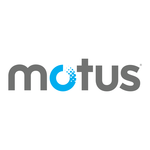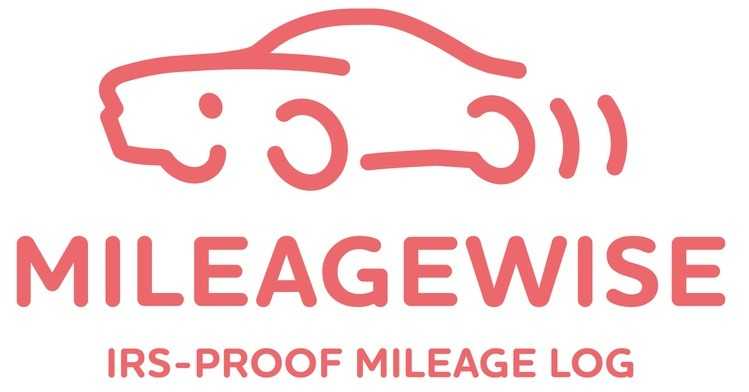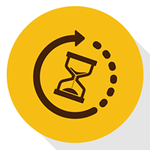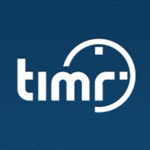What Is Mileage Tracking Software?
miles tracking software is a form of software that allows people and businesses to correctly measure and record their vehicle miles. This software is specifically created for those who need to track and submit business-related travel expenses for tax purposes. It offers an efficient and accurate method of tracking and recording miles, making it an invaluable tool for any business owner or employee who travels regularly for work.
One of the primary benefits of mileage monitoring software is the ability to automatically track and report distance using GPS technology. Users may just enter their starting place and destination, and the software will compute the distance traveled. This eliminates the need for manual tracking and significantly lowers the likelihood of human error.
In addition to tracking mileage, this software allows users to store and manage vehicle-related information such as maintenance records, petrol bills, and parking fees. This is especially useful for those who use their own vehicle for business purposes, as it allows them to precisely evaluate the entire cost of driving for work. One of the primary advantages of using mileage tracking software is the ability to create thorough reports.
This simplifies the tracking and analysis of corporate travel expenses, which can be critical for budgeting and tax purposes. Many software packages also include the ability to export data to popular accounting software, greatly easing the reporting process. When selecting mileage tracking software, evaluate the features and compatibility with your individual requirements. Some software may provide extra functions such as trip classification, car maintenance reminders, and interaction with other corporate applications. It is also crucial to look for user-friendly interfaces and mobile compatibility to ensure convenience and ease of usage.
What Are The Recent Trends In Mileage Tracking Software?
In recent years, mileage monitoring software has grown in popularity among both people and businesses. With the growing reliance on technology and the necessity for precise expense management, mileage tracking software is now regarded as a vital tool by many. One of the most recent trends in mileage tracking software is the shift to cloud-based solutions.
Users can now access and amend their mileage records from any digital device with an internet connection, eliminating the need to manually enter and retain data. This not only saves time, but also ensures that data is safely backed up and immediately accessible to other team members or accountants. Another popular feature in mileage tracking software is connectivity with other company software and apps.
Many mileage monitoring software now integrates smoothly with accounting software, cost management systems, and GPS navigation apps, allowing users to better manage their business operations and expenses. In terms of features, AI-powered technology is driving substantial progress in the mileage monitoring software sector. Mileage tracking software now uses machine learning algorithms to automatically categorize trips and precisely compute mileage deductions, removing the need for users to perform tiresome human work. Data security and privacy are two important problems in today's modern landscape.
As a result, many mileage monitoring applications now include advanced security features like encryption and secure data storage to safeguard important information. Finally, smartphone accessibility and user-friendly interfaces are becoming common aspects of mileage tracking software. As consumers rely more on their smartphones for company activities, having a convenient and user-friendly mobile app is an important feature to consider when selecting mileage tracking software.
Benefits Of Using Mileage Tracking Software
Mileage monitoring software is a useful tool for both people and corporations. It enables the efficient and accurate tracking of miles driven for personal or business needs, bringing several benefits to users.
In this buyer's guide, we'll look at the main advantages of utilizing mileage monitoring software to help you decide whether it's the correct investment for you.
1. Accurate Mileage Tracking: The biggest advantage of using mileage tracking software is its ability to precisely track the distance you drive. Manually logging your miles on a piece of paper or spreadsheet is no longer an option, as it might lead to inaccuracies and conflicts. Tracking software allows you to enter the start and end points of your journey, and it will automatically calculate the distance traveled, leaving no opportunity for human error. This accuracy is critical, especially for organizations that must keep track of miles for tax or reimbursement purposes.
2. Efficiency And Time Savings: Using mileage monitoring software reduces the need for manual tracking, which can be time-consuming and laborious. By automating the process, you can save time and focus on other important responsibilities. It also eliminates the need for tangible records, resulting in a paperless and environmentally friendly choice.
3. Cost Savings: For organizations, poor mileage monitoring can lead to significant financial losses due to incorrect tax deductions or overpayment of employee reimbursements. Using mileage monitoring software ensures that all miles are accounted for and precisely reported, which saves you money in the long run.
4. Real-Time Data: Mileage monitoring software delivers real-time data, allowing you to view complete details about your mileage utilization. This information can help you with budgeting, route planning, and discovering cost-cutting or efficiency-boosting opportunities. It also allows you to track the mileage of several vehicles, making it an excellent choice for organizations with a fleet of vehicles.
5. IRS Compliance: The IRS expects precise and complete records for mileage deduction claims; failing to do so may result in penalties. Using mileage monitoring software ensures that your records comply with IRS standards, providing you peace of mind and avoiding potential fines or legal complications.
Important Factors To Consider While Purchasing Mileage Tracking Software?
When it comes to selecting mileage monitoring software, there are a few key elements to consider before making a purchase. The features and functionality, as well as the price and customer service, can all have a significant impact on your total software experience.
In this buyer's guide, we'll walk you through the essential factors to consider when choosing the best mileage tracking software for your needs.
1. Feature & Functionality: The first and most important consideration is the software's features and functionality. Look for a tool that supports automatic mileage monitoring, real-time tracking, customized trip categorization, and report generating. Make sure the software is easy to use and compatible with your device (desktop, mobile, or both).
2. Price: Another key consideration is the cost of the software. Consider your budget and the value you hope to derive from the software. Some programs need a one-time purchase, while others use a subscription basis. Look for software that includes a free trial or a money-back guarantee so you can try it out before committing to a long-term plan.
3. Integration With Other Tools: If you use other business tools, such as accounting or CRM software, ensure that the mileage tracking program integrates with them properly. This will save you time and effort on manual data entry while also ensuring that your records are accurate.
4. Customer Assistance: Technical issues or questions might develop at any time, so it's critical to select a software provider with dependable customer assistance. Look for ways to contact their support personnel, such as phone, email, or live chat, and compare their response time to feedback from other customers.
5. Security And Privacy: Because you will be exchanging critical business data with the program, you must assess its security and privacy features. Look for features like data encryption and secure cloud storage to ensure your information is safe.
6. Mobile Accessibility: If you or your workers travel regularly for work, select software that includes a mobile app or is accessible via a mobile browser. This allows you to log mileage while on the road and saves time on future manual entries.
7. Scalability: If you expect your business to expand in the future, buy software that can accommodate that development. Look for ways to add more users and increase the software's capabilities to meet your evolving requirements.
What Are The Key Features To Look For In Mileage Tracking Software?
When it comes to selecting the best mileage monitoring software for your purposes, there are a few important things to consider. These features not only assure the most precise and efficient tracking, but they also make the overall mileage management process easier. As a result, before making a purchase, you should carefully consider these aspects and select the software that best matches your needs.
Here are the key characteristics to look for in mileage tracking software:
1. Auto Tracking: The most significant feature of mileage tracking software is automatic tracking. This means that the program should be able to track your miles without your involvement. This can be accomplished using GPS tracking or by connecting to your vehicle's onboard computer system. This function eliminates the need for human entries, which reduces the possibility of errors and saves time.
2. Real-Time Updating: Another important characteristic to consider is real-time updating. This implies that the software should constantly update and record your excursions while you drive, giving you with accurate and up-to-date data. This capability is particularly beneficial for fleets or corporations who need to monitor and track their vehicles in real time.
3. Numerous Device Compatibility: In today's environment, software must be compatible with numerous devices. This allows you to access your mileage statistics from any device, including a smartphone, tablet, or computer. Look for mileage monitoring software that works on a variety of platforms and devices, allowing you to manage your mileage on the go.
4. Customizable Categories: Each organization has unique mileage tracking requirements. As a result, it is critical to select software that allows for unique categories. This feature allows you to establish and manage custom categories for your business, making it easier to track and analyze specific types of travel, such as business trips, personal excursions, or medical journeys.
5. Reporting And Analytics: Another important aspect is the ability to generate extensive reports and analytics. This provides you with insights into your mileage statistics, such as the cost of each trip, mileage trends, and potential tax deductions. Look for software that includes thorough reporting and analytics to help you make informed decisions.
6. Integration With Other Systems: If you already use other business software or tools, it's a good idea to choose mileage tracking software that can integrate with them. This will make it easier to track and manage all elements of your business from a single location, saving you time and effort.
7. User-Friendly Interface: Finally, think about how user-friendly the program interface is. A well-designed and intuitive interface can significantly improve how effortlessly you can navigate and use the product. Look for a user-friendly interface that simplifies mileage tracking and shortens the learning curve for you and your staff.
Why Do Businesses Need Mileage Tracking Software?
Mileage tracking software is an important tool for organizations of all sizes since it helps them to properly and efficiently measure the miles driven by their personnel. Whether you have a small team of mobile workers or a huge fleet of vehicles, this software can help your organization in a variety of ways. First and foremost, mileage tracking software saves businesses money by providing precise information about the distance traveled by their cars.
Businesses that keep track of their mileage can claim compensation for business-related trips and deduct vehicle expenses on their tax returns. This not only decreases the possibility of errors and inaccuracies, but also saves businesses time and effort. Second, it allows firms to closely monitor and manage their fuel expenses. With the rising cost of fuel, mileage tracking software enables organizations to discover and prevent unauthorized and unnecessary journeys, lowering fuel usage and expenses.
Furthermore, it provides insights into the most fuel-efficient routes followed by employees, allowing firms to improve their operations accordingly. Furthermore, this software assists organizations in complying with tax requirements and internal procedures. Businesses that keep detailed records of mileage can readily demonstrate the authenticity of their automobile expenses in the event of an audit.
This not only ensures tax compliance, but also avoids any potential legal or financial consequences. In addition to financial benefits, mileage tracking software enhances staff productivity and accountability. With accurate tracking, organizations can monitor and assess their employees' performance on the road, allowing them to find areas for improvement.
It also increases employee accountability while discouraging personal use of work automobiles. Finally, mileage monitoring software provides simplicity and efficiency to enterprises. It automates the process of tracking mileage and creating thorough reports, removing the need for manual record-keeping. This saves time and resources for organizations, allowing them to focus on more vital duties.
How Much Time Is Required To Implement Mileage Tracking Software?
The time required to implement mileage monitoring software varies according to the program and how it is incorporated into your business operations. In general, implementation can take anywhere from a few hours to a few weeks. The first step in deploying mileage monitoring software is to choose the proper one for your company. This entails investigating several solutions, comparing their features and pricing, and even taking advantage of free trials to try the software.
The next step is to set up the software you've chosen. This normally entails creating an account, entering your company and personnel information, and tailoring settings to your individual requirements. This process can take anywhere from a few minutes to several hours, depending on the software's complexity. After installing the program, the following step is to train your personnel on how to utilize it.
This can involve educating them how to track their mileage, send reports, and use any other services that may be useful to your organization. The amount of time required for training will be determined by the size of your team and their experience with similar software. Finally, the implementation step entails integrating the mileage tracking software with your current systems and processes.
This can take anywhere from a few hours to many weeks, depending on how complicated your systems are and how well the software connects with them. Overall, the time required to establish mileage monitoring software varies, but it is recommended that you allow a few weeks for the complete procedure. This will allow for extensive study, configuration, and training to ensure a smooth transfer and successful usage of the software in your business operations.
What Is The Level Of Customization Available In Mileage Tracking Software?
The level of flexibility available in mileage tracking software is an important factor to consider. This can significantly affect the overall efficiency and efficacy of the product for your specific requirements. So, what exactly does customization mean in the context of mileage monitoring software? Simply put, customization means the ability to modify the program to your specific business needs.
This might range from minor changes to the UI to more extensive capabilities that enable individualized data collection and reporting. The level of customization available differs every software, so it's critical to understand your individual requirements and find a good fit. At a basic level, most mileage monitoring software allows you to define mileage rates, reimbursement procedures, and expense categories.
These functionalities are required for effectively recording and reporting business miles. However, more powerful software may provide further customization options, such as mileage log reminders, integration with your preferred accounting or reporting systems, and the ability to create bespoke mileage reports. Another factor to consider is the extent of customisation for various user roles in your organization. This is especially useful for larger firms with several staff use the program. Look for software that allows you to set distinct access levels and permissions for each user based on their function, assuring data privacy and security.
Which Industries Can Benefit The Most From Mileage Tracking Software?
Mileage monitoring software can help businesses in a variety of industries. However, there are a few industries that will benefit the most from deploying this technology. These industries include transportation, delivery and logistics, sales and marketing, and field services. Mileage tracking software can assist streamline operations in the transportation business by correctly recording vehicle distances, guaranteeing regular maintenance schedules, and optimizing routes for maximum efficiency. This can result in cost savings for the firm and better performance for drivers.
Mileage tracking software can provide real-time position data for cars, allowing managers to track deliveries and make modifications while on the road. This can enhance overall delivery times and customer service. Sales and marketing workers who frequently travel for client meetings and events might benefit from mileage monitoring software, which accurately records business-related travel expenses for reimbursement and tax purposes.
This can also help them track and analyze their travel habits, allowing them to make more educated selections in the future. Mileage monitoring software can track the distance traveled by technicians to customer sites in field service industries such as HVAC, plumbing, and electrical, making billing and expenses easy to compute. It can also assist firms track the whereabouts and productivity of their field staff, resulting in better resource management.
Overall, mileage monitoring software can provide several benefits to companies that require regular travel and transportation. It can increase efficiency, reduce expenses, and give critical data for making informed decisions. So, if you work in any of these businesses, investing in reputable mileage tracking software is highly suggested.
Conclusion
Mileage monitoring software is no longer a luxury—it's a must-have for businesses and professionals that rely on precise travel records for reimbursements and tax breaks. Manual techniques frequently result in errors, missing entries, and wasted time, whereas digital alternatives automate the process and ensure that every journey is accurately recorded. This software reduces time and improves compliance with tax requirements, providing you confidence in your financial reporting.
When picking the best solution, it is critical to look beyond basic tracking. Mobile accessibility, interaction with accounting platforms, customizable reporting, and real-time synchronization are all features that can improve efficiency and cost management significantly. Choosing the proper mileage monitoring software provides you with the tools you need to streamline processes, decrease administrative responsibilities, and ultimately achieve better financial management.






















